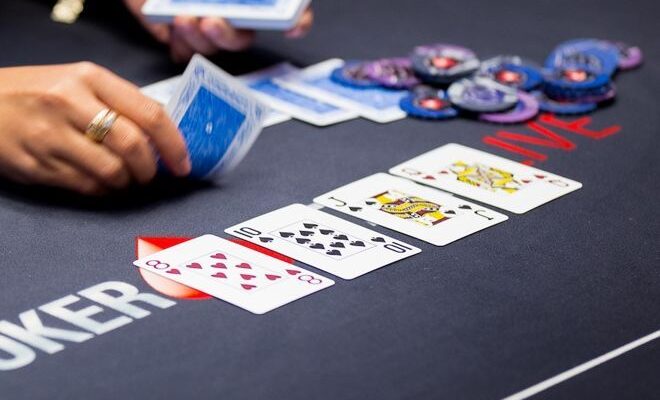In the world of card games, few are as iconic and revered as river poker. Combining elements of skill, strategy, psychology, and chance, poker has captured the hearts and minds of players around the globe for centuries. From smoky backroom games to high-stakes tournaments broadcast on television, poker’s appeal is undeniable. In this article, we’ll delve into the fascinating world of poker, exploring its history, gameplay, strategies, and the psychology behind the cards.
A Brief History of Poker:
The origins of poker are shrouded in mystery, but its roots can be traced back to several different card games that were popular in Europe and Asia. By the early 19th century, آموزش پوکر had evolved into a recognizable form in the United States, spreading along with the westward expansion. The game’s development continued, with the introduction of different variants like Texas Hold’em, Omaha, and Seven-Card Stud.
The Basics of Poker:
Poker is a game that typically involves a standard deck of 52 playing cards, though variations can use additional cards. The objective of most poker variants is to assemble the best possible hand or to bluff opponents into folding their hands. Each player is dealt a combination of hidden (hole) cards and shared (community) cards over several betting rounds. The player with the strongest hand at the showdown wins the pot.
Strategies for Success:
- Starting Hand Selection: A crucial aspect of poker strategy is knowing which hands to play and which to fold. Starting hand selection varies based on the variant being played, but generally, hands with high-ranking cards and potential for strong combinations are preferred.
- Positional Awareness: In games like Texas Hold’em, where players act in a specific order, the position at the table plays a significant role. Players acting later in a betting round have more information about their opponents’ actions, allowing for more informed decisions.
- Reading Opponents: Successful poker players master the art of reading their opponents. By observing betting patterns, body language, and timing, skilled players can make educated guesses about the strength of their opponents’ hands.
- Bluffing and Deception: Bluffing is a cornerstone of بازی پوکر strategy. Convincing opponents that you have a strong hand when you don’t can lead them to fold, even if they have better hands. However, overusing this tactic can make you predictable.
- Bankroll Management: Managing your river poker bankroll is crucial to long-term success. Setting limits on how much you’re willing to lose and properly managing your bets helps avoid financial ruin and emotional distress.
The Psychology of Poker:
Poker isn’t just about cards; it’s about people. Understanding human psychology is as important as understanding odds and probabilities. Elements of psychology in poker include:
- Tilt: Tilt is a state of emotional frustration that can lead to poor decision-making. Recognizing when you’re on tilt and taking steps to regain composure is vital.
- Table Image: How you’re perceived by other players influences how they play against you. A tight and aggressive image might lead opponents to fold against your bets. While a loose image might encourage them to call more often.
- Mind Games: Psychological warfare is a significant aspect of poker. Players might employ tactics like slow-playing to induce opponents into making larger bets. They might use reverse psychology to manipulate their opponents’ decisions.
The Evolution of Poker:
With the advent of online poker platforms, the game’s popularity skyrocketed even further. Players from around the world could now compete against each other without geographical limitations. Online poker also brought new dynamics to the game, with faster gameplay and different strategies required for success.
Conclusion:
Poker is more than just a card game; it’s a battle of wits, strategy, and psychology. Its evolution from smoky saloons to digital platforms showcases its enduring appeal. Whether you’re a casual player looking for a fun pastime or a serious contender aiming for high-stakes tournaments. River poker offers a captivating and intellectually stimulating experience that has stood the test of time. So, shuffle the deck, place your bets, and may the best hand win!

